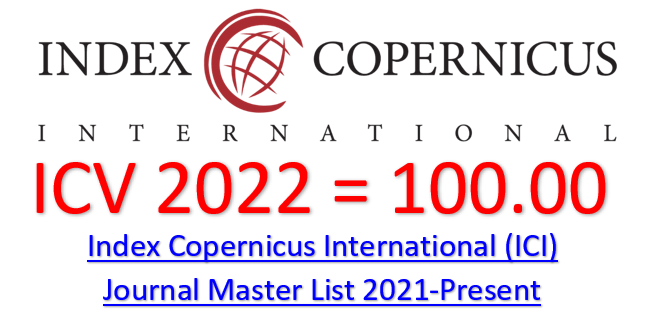The Influence Of Health Education On Safe Delivery On The Motivation Of Membership In The Health Facility
DOI:
https://doi.org/10.55018/janh.v4i1.35Keywords:
Health Education, Safe Delivery, MotivationAbstract
Background: The high rate of MMR and AKN in Bangkunat District is one of the causes of deliveries not in health facilities. The low coverage of deliveries in health facilities is 64.66% of the 100% target in 2020, one of which is caused by the lack of knowledge of pregnant women about the importance of giving birth in health facilities. This study aimed to determine the effect of health education on safe delivery on motivation to give birth in health facilities in the Public Health Center working area. Bengkunat Belimbing Health Center in 2021.
Method: The design in this study was pre-experimental (the one group pretest-posttest without control group design). The population in this study were all pregnant women in the third trimester in Pekon Pendingan, Pekon Jawa City, Pekon Pemerihan, Pekon Sumberejo, and Pekon Sukanegeri, totaling 31 pregnant women in the third trimester. The sample was taken from as many as 31 third-trimester pregnant women given counseling about safe delivery. Bivariate analysis in this study used a Parametric, namely the Paired Sample T-Test.
Result: Test Parametric (Paired Sample T-Test) obtained a p-value of 0.000 (<0.01), which means that there is an effect of health education on safe delivery on motivation to give birth in health facilities in the Public Health Center work area. Bengkunat Belimbing Public Health Center in 2021.
Conclusion: Based on the results of the study, the researchers suggest that it is necessary to strengthen the implementation of health education regarding safe delivery to pregnant women both in quantity and quality, which is carried out in Posyandu, maternal classes, or in health facilities by ensuring that all pregnant women have been given education health, monitoring the implementation of health education activities as well as the implementation of technical guidance activities on an ongoing basis.
Downloads
References
Ambarwati, R., Muis, S. F., & Susanti, P. (2014). Pengaruh konseling laktasi intensif terhadap pemberian air susu ibu (ASI) eksklusif sampai 3 bulan. Jurnal Gizi Indonesia (The Indonesian Journal of Nutrition); Vol 2, No 1 (2013). https://doi.org/10.14710/jgi.2.1.
Ananth, C. V, Brandt, J. S., Hill, J., Graham, H. L., Grover, S., Schuster, M., Patrick, H. S., & Joseph, K. S. (2021). Historical and Recent Changes in Maternal Mortality Due to Hypertensive Disorders in the United States, 1979 to 2018. Hypertension, 78(5), 1414–1422.
Arwin, P., Edison, E., & Kadri, A. (2019). Upaya Peningkatan Pemanfaatan Puskesmas Untuk Pelayanan Persalinan pada Dinas Kesehatan Kota Solok Tahun 2018. Jurnal Kesehatan Andalas, 8(3), 612–616.
Ashari, A. (2021). Maternal Referral Delay Factors . Journal of Applied Nursing and Health, 3(2 SE-Articles), 7–16. https://janh.candle.or.id/index.php/janh/article/view/2
Bunga, A., Salsabila, R., Aula, R., & Maharani, S. (2021). Description of Knowledge About Reproductive Health in Youth at Muhammadiyah University Jakarta 2021. Muhammadiyah International Public Health and Medicine Proceeding, 1(1), 717–734.
Fatimah, S. (2019). PENGARUH PENDIDIKAN KESEHATAN TENTANG SENAM HAMIL TERHADAP PENGETAHUAN DAN MOTIVASI IBU UNTUK MELAKUKAN SENAM HAMIL DI DESA MALAKASARI. HEALTHY JOURNAL| Jurnal Ilmiah Kesehatan Ilmu Keperawatan, 7(1), 22–29.
Habari, N. (2020). BIDAN ATAU DUKUN? PILIHAN IBU HAMIL DALAM PERTOLONGAN MELAHIRKAN (Studi Pada Ibu Hamil di Wilayah Kerja Puskesmas Sulamadaha, Kota Ternate). Journal of Ethnic Diversity and Local Wisdom, 2(2), 52–58.
Jerinikolin, P., & Aisa, S. (2017). HUBUNGAN PENGETAHUAN DAN SIKAP IBU BERSALIN TENTANG FASILITAS PERSALINAN DENGAN PEMANFAATAN FASILITAS PERSALINAN DI PUSKESMAS MALIGANO KABUPATEN MUNA TAHUN 2017. Poltekkes Kemenkes Kendari.
Kemenkes. (2012). Kinerja kegiatan pembinaan gizi tahun 2011 menuju perbaikan gizi perseorangan dan masyarakat yang bermutu.
Kemenkes. (2014a). Pedoman Pelaksanaan Kelas Ibu. Kementerian Kesehatan RI.
Kemenkes. (2014b). Peraturan Menteri Kesehatan RI Nomor 97 Tahun 2014 tentang Pelayanan Kesehatan Masa Sebelum Hamil, Masa Hamil, Persalinan, dan Masa, Sesudah Melahirkan, Penyelenggaraan Pelayanan Kontrasepsi, Serta Pelayanan Kesehatan Seksual. Kemenkes RI.
Muflihah, I. S., Muflihah, I. S., & Yuliani, D. A. (2018). PERBEDAAN PENGETAHUAN SEBELUM DAN SESUDAH DIBERIKAN PENDIDIKAN KESEHATAN IUD PASCA PLASENTA DI RSUD PURBALINGGA. Viva Medika: Jurnal Kesehatan, Kebidanan Dan Keperawatan, 11(2), 54–58.
Nurhayati, N., & Sugiharto, M. (2019). Perilaku Memilih Tenaga Penolong Persalinan pada Ibu Melahirkan di Desa Blambangan, Kecamatan Penengahan, Kabupaten Lampung Selatan, Indonesia. Buletin Penelitian Kesehatan, 47(3), 165–174.
Puspitaningrum, E. M. (2018). Hubungan Status Gizi Ibu Hamil dengan Kejadian Berat Badan Lahir Rendah (BBLR) di RSIA Annisa Kota Jambi Tahun 2018. Scientia Journal, 7(2), 1–7.
Riskesdas. (2018). Hasil Utama Riset Kesehatan Dasar. In Kementrian Kesehatan Republik Indonesia. https://doi.org/1 Desember 2013
Rosdiana, M. (2019). Hubungan Pendampingan Suami terhadap Tingkat Kecemasan Ibu Bersalin di RB Citra Palembang Tahun 2018. Jurnal Kesehatan Dan Pembangunan, 9(17), 54–60.
Simanjuntak, A. R. (2019). Pengaruh Pendidikan Gizi dengan Media Booklet terhadap Pengetahuan dan sikap remaja putri tentang 1000 Hari Pertama Kehidupan (HPK) di SMA RK Serdang Murni Lubuk Pakam. Poltekkes Kemenkes Medan.
Wahmad. (2017). Faktor-Faktor Yang Berhubungan Dengan Pemilihan Tempat Persalinan Pada Ibu Hamil Yang Mengikuti Kelas Ibu Hamil Di Wilayah Kerja Puskesmas Kandangserang Kabupaten Pekalongan. Tesis Universitas Muhammadiyah Semarang [Tesis Universitas Muhammadiyah Semarang]. http://repository.unimus.ac.id
Wardani, T. A. K. (2020). Faktor-Faktor Yang Berhubungan Dengan Pemilihan Penolong Persalinan Pada Ibu Hamil Di Wilayah Kerja Puskesmas Kecamatan Pakuhaji Kabupaten Tangerang Provinsi Banten Tahun 2020 [Poltekkes Jakarta III]. http://repository.poltekkesjakarta3.ac.id
WHO. (2010). Pelayanan Kesehatan Maternal. WHO.
Yusenta, N., Komalasari, K., Umar, M. Y., & Marthalena, Y. (2020). Konseling Tentang Program Perencanaan Persalinan dan Pencegahan Komplikasi (P4K) dengan Peningkatan Motivasi Ibu Hamil Untuk Bersalin di Fasilitas Kesehatan. Wellness And Healthy Magazine, 2(2), 225–230.
Downloads
Published
How to Cite
Issue
Section
License

This work is licensed under a Creative Commons Attribution-ShareAlike 4.0 International License.

























